International Conference
International Conference
INHA CIS – UP KRC Joint Korean Studies Workshop
- Created 2025.09.15
- Presenter2025-08-29
- Views320
The INHA CIS and the Korean Studies Institute at the University of the Philippines jointly held the “Korean Studies Workshop” on Friday, August 29, 2025, from 3:00 to 5:00 p.m. at the Korean Studies Institute of the University of the Philippines. The workshop was organized to explore, in an academic context, the current state and future directions of Korean Studies’ global diffusion, with particular attention to its development in the Global South.
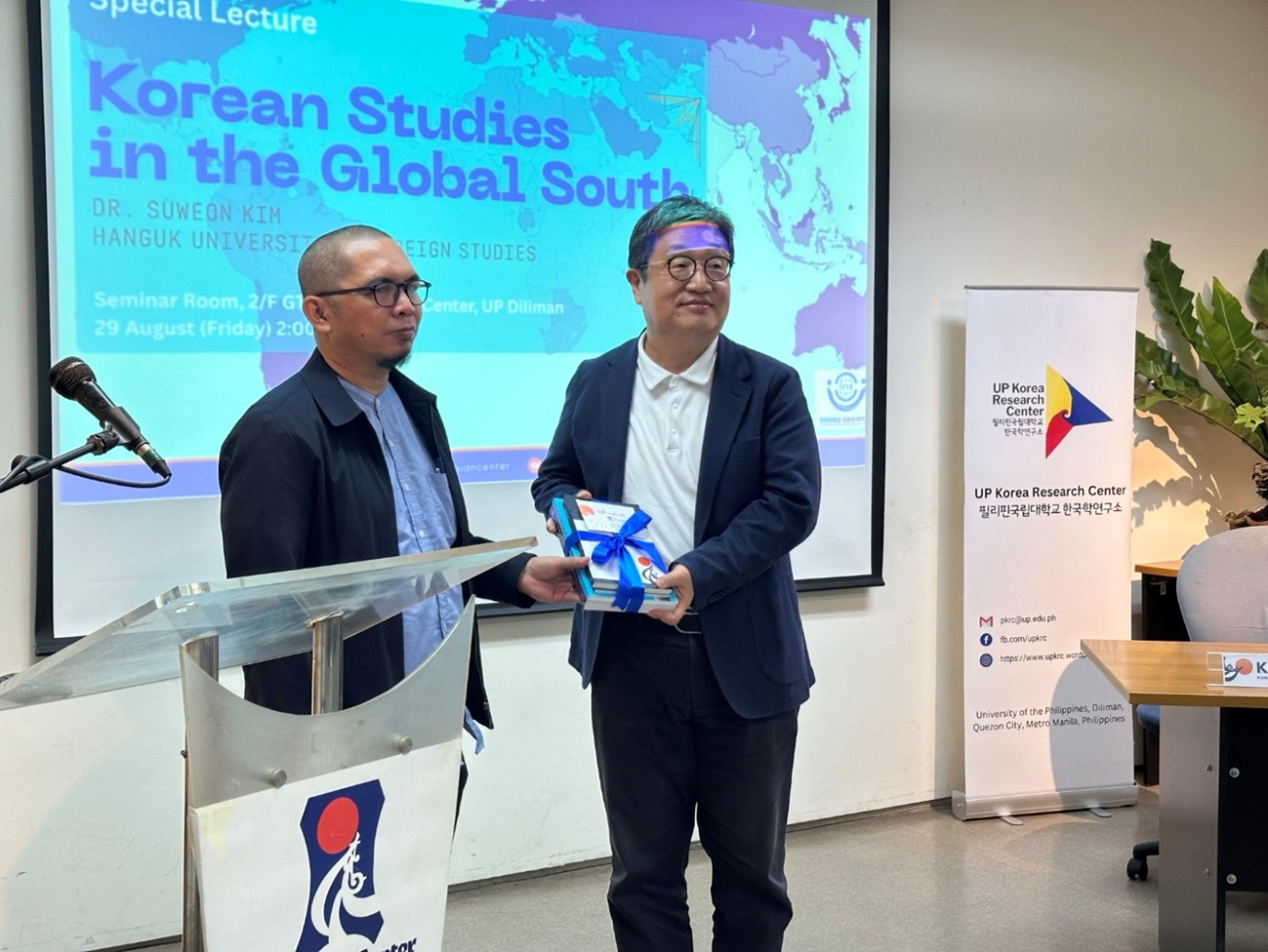
The event opened with a welcoming address by Jean-young Lee, Director of the Inha Center for International Studies. Director Lee noted the steadily rising interest in and consumption of Korean cultural content in the Philippines, emphasizing that Korean Studies must evolve beyond the sphere of cultural appreciation to encompass the fields of social sciences and political science/international relations. Following this, Kyung Min Bae, Director of the University of the Philippines Korean Studies Institute, delivered a congratulatory remark. She introduced the institute’s ongoing efforts since its establishment in 2016 to promote the diffusion of Korean Studies in the Philippines and stressed that the workshop would serve as an opportunity to deepen and expand these achievements.
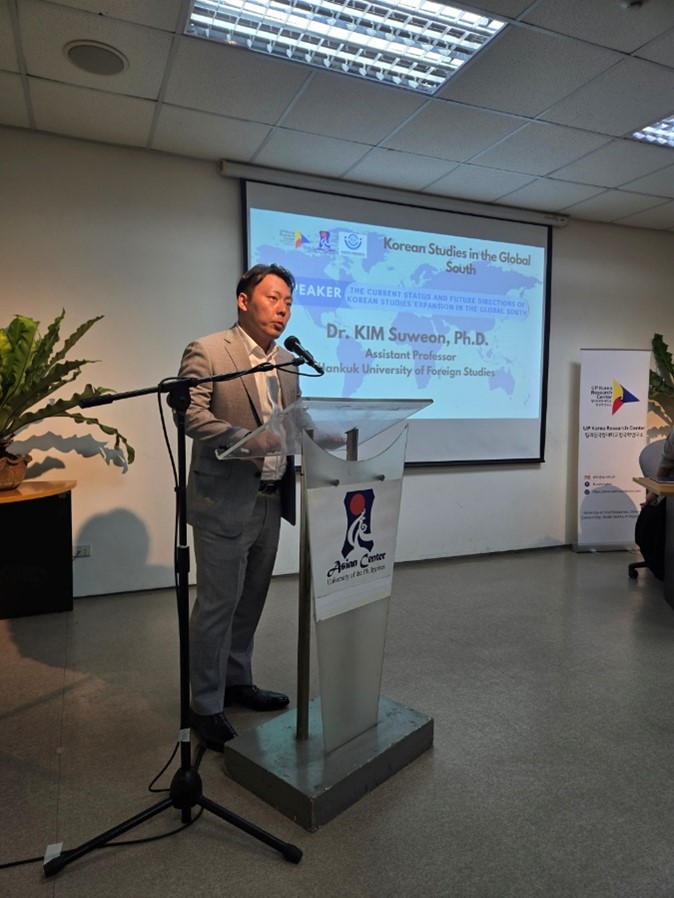 |
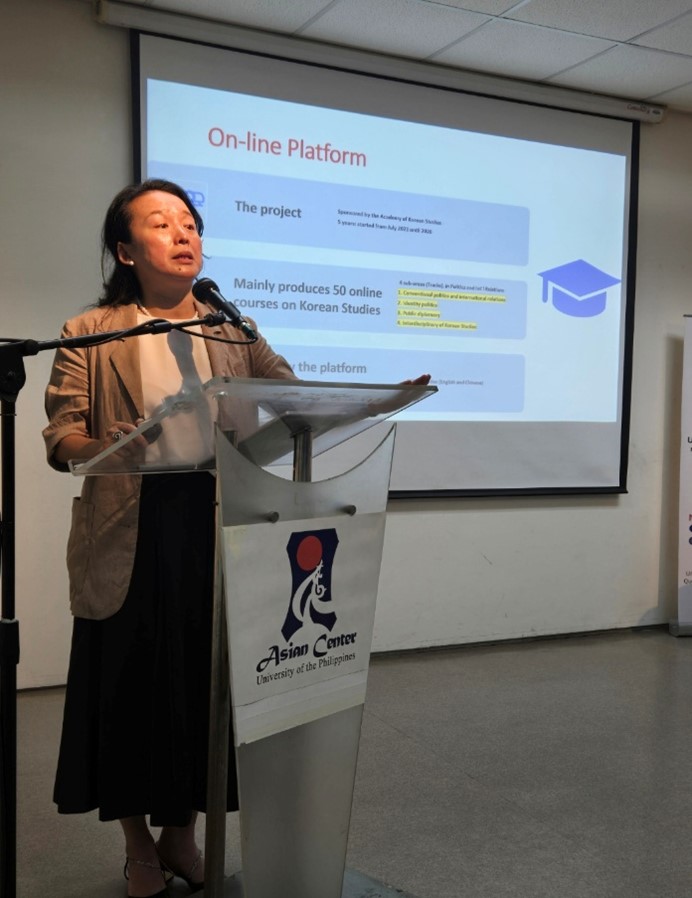 |
In the main session, Research Professor SeungJae Lee of Inha CIS served as moderator, guiding discussions on the current challenges and prospects of Korean Studies in the Global South. Professor Suweon Kim (Hankuk University of Foreign Studies) and Professor Michelle Palumbarit (University of the Philippines) each presented in-depth analyses on the academic development of Korean Studies and its potential applicability in local contexts.
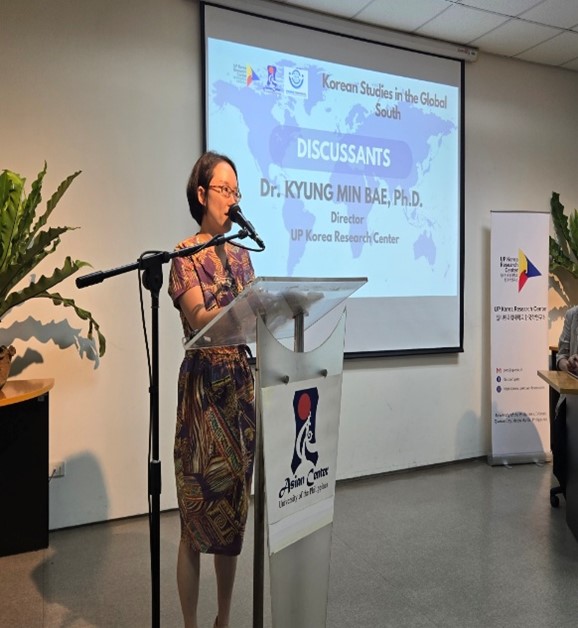 |
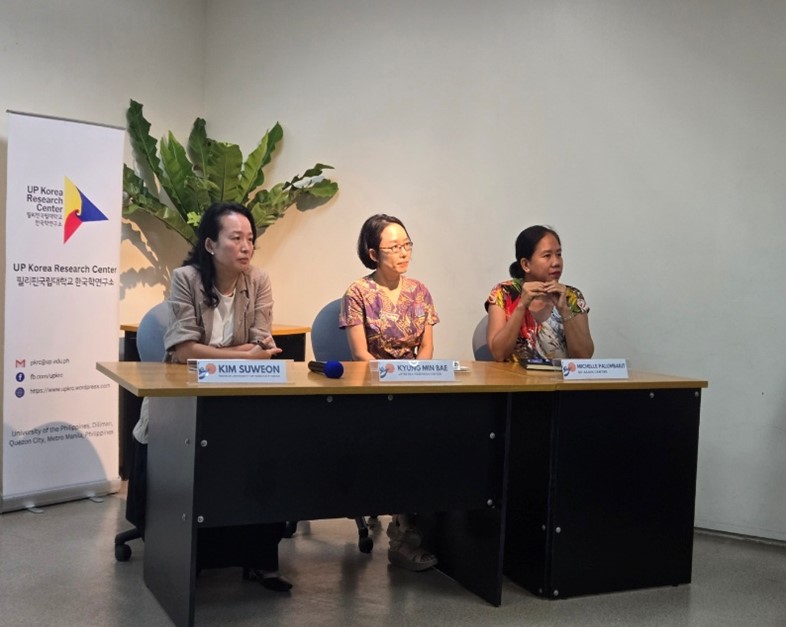 |
The discussion session brought together Director Jean-young Lee, Director Kyung Min Bae, and several researchers from the University of the Philippines. The participants addressed key issues such as ▲the structural limitations faced by Korean Studies research in Philippine society, ▲the gap between academic outcomes and social demand, ▲the necessity of expanding joint research and academic exchange. They also reached consensus on the importance of establishing long-term support systems and joint research projects between the academic communities of Korea and the Philippines to ensure the sustainable growth of Korean Studies in the Philippines.
As a result of the workshop, participants collectively identified the current state of Korean Studies in the Philippines and shared concrete directions for its future development, including ▲deepening research in Korean Studies from a social science perspective, ▲broadening interdisciplinary approaches, ▲strengthening international joint research networks, and ▲pursuing sustained cooperation with local universities and research institutes.
The workshop was a meaningful occasion to examine how Korean Studies—particularly in the field of social sciences—can advance in a context like the Philippines, where the Korean Wave has already taken strong root. Participants concluded the event with a shared commitment to close collaboration between the two institutions to ensure that Korean Studies research in the Philippines will be further systematized academically and expanded internationally.



